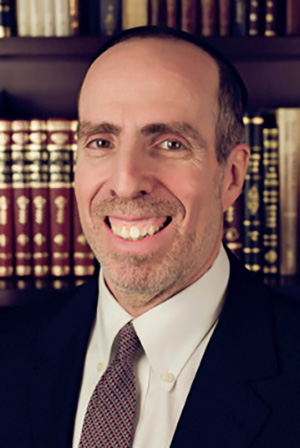
For years, we at Shaarei Orah have been praying Arvit early at the end of the first day of Yom Tov leading into the evening of Yom Tov Sheini. While this is clearly not the typical practice at Ashkenazic congregations (see Aruch Hashulchan Orach Chaim 668:6 and Yom Tov Sheni Kehilchato p. 37, which rule that one may bring in Yom Tov Sheini early only in a case of extenuating circumstances and cites Rav Yosef Shalom Elyashiv who agrees), at Shaarei Orah we follow the rulings of the venerable Rav Yosef Chaim of Baghdad and Chacham Ovadia Yosef, who permit.
The days when this is relevant are for night leading to the last day of Pesach and the second day of Shavuot. (There are a variety of reasons for which we cannot accept the other Yomim Tovim early, that are beyond the scope of this discussion.) Many Shaarei Orah members have posed a variety of questions on this practice and I seek to clarify matters in this essay.
Doesn’t Accepting Yom Tov Sheini Early Detract From Yom Tov Rishon?
Chazal (Brachot 27b) permit us to accept both Shabbat and a Yom Tov before sunset. We may pray and we may recite Kiddush while it is still light as long as it is past plag haMincha (one and a quarter “halachic hours” prior to sunset). The Taz (Orach Chaim 489:10) objects to accepting Yom Tov Sheini early since it subtracts from the holiness of Yom Tov Rishon. Yom Tov Rishon is biblical whereas Yom Tov Sheini is only rabbinic in origin and thus it appears improper to reduce the holiness of the day.
However, most Acharonim reject this approach of the Taz (Sha’ar HaTziyun 668:11). Thus, even after praying Arvit and reciting Kiddush early, the day fundamentally remains the first day of Yom Tov.
Some Acharonim are concerned that if one prays Arvit early he will come to prepare from Yom Tov Rishon to Yom Tov Sheini. However, Rav Yosef Chaim insists that this is a concern only for those who recite Kiddush after Tzeit HaKochavim, as we shall explain.
Lighting Candles Early
Rav Yosef Chaim of Baghdad (in both his Teshuvot Rav Poalim 4:23 and his Ben Ish Chai (Bamidbar Year 1 #2) permits lighting candles while it is still light if Kiddush is recited while it is still light. He writes that since one should see the candles while saying Kiddush, and some (especially the chachmei haKabalah) even say that this is absolutely necessary, lighting the candles is an immediate need and not an issue of preparing from one day of Yom Tov for the next.
Hachanah
Rav Yosef Chaim permits eating the meal while it is still light as well. The Gemara obviously supports this point, since the meal must follow Kiddush immediately, “ein Kiddush ela b’m’kom seudah.” Rav Yosef Chaim even encouraged beginning Yom Tov Sheini early and eating while it is still light, since mosquitoes abounded this time of year in Baghdad and one wanted to be sure he could have sufficient light to ensure that one would not consume, God forbid, any of these bugs. Although this specific concern may not be relevant to the contemporary circumstance, the need for families to eat at a reasonable hour also constitutes sufficient need to begin the second day and its meal early.
If the meal is permitted to be eaten, then obviously one may make all necessary preparations for the meal, such as setting the table and serving the food. This preparation may be done even on Yom Tov Rishon before plag haMincha if a significant portion of the meal will be eaten before sunset. Although one may not prepare from the first day of Yom Tov to the other, since the meal is eaten before sunset, one is considered to be preparing for that which is needed on the first day.
One is even permitted to cook on Yom Tov Rishon before Pelag HaMincha if a significant portion of the meal will be eaten before sunset. Although this is not explicit in the Rav Poalim and Ben Ish Chai, the important contemporary Sephardic posek Rav Shmuel Khoshkerman of Atlanta supports my understanding that it is implicit in these works.
Conclusion—Shaarei Orah’s Plan for Shavuot 5778
One has two options at Shaarei Orah after Arvit at the end of the first day of Shavuot. Pelag HaMincha on the first day of Shavuot 5778 is at 6:40 p.m. and sunset is 8:11 p.m. We pray Mincha at 6:25 p.m. and begin Arvit at 6:40. One has ample time after Arvit to arrive at home and recite Kiddush considerably before sunset. If Kiddush will be recited while it is still light, the woman of the home should light Yom Tov candles before reciting Kiddush. All preparation for this meal may be made even before Pelag HaMinha, provided that a significant portion of the meal is eaten before sunset.
If one wishes to be strict, one may pray Arvit early with Shaarei Orah and wait until Tzeit HaKochavim (this year 8:48 p.m.) to recite Kiddush and light candles. If one follows this stricter approach, one should not begin preparations for the meal until after 8:48 p.m.
Postscript—Moroccan Jews
Rav Mordechai Lebhar was kind enough to share with me a teshuvah he composed that concludes that Moroccan Jews may also rely on the ruling of the Ben Ish Chai if there is a compelling reason to do so. He writes that although this was not the practice in North Africa, in today’s circumstances there may be a compelling reason to accept the second day after plag haMincha. A family’s need to eat at a reasonable hour of course constitutes a situation of great need.
By Rabbi Haim Jachter
Rabbi Haim Jachter is the spiritual leader of Congregation Shaarei Orah, the Sephardic Congregation of Teaneck. He also serves as a rebbe at Torah Academy of Bergen County and a dayan on the Beth Din of Elizabeth.












